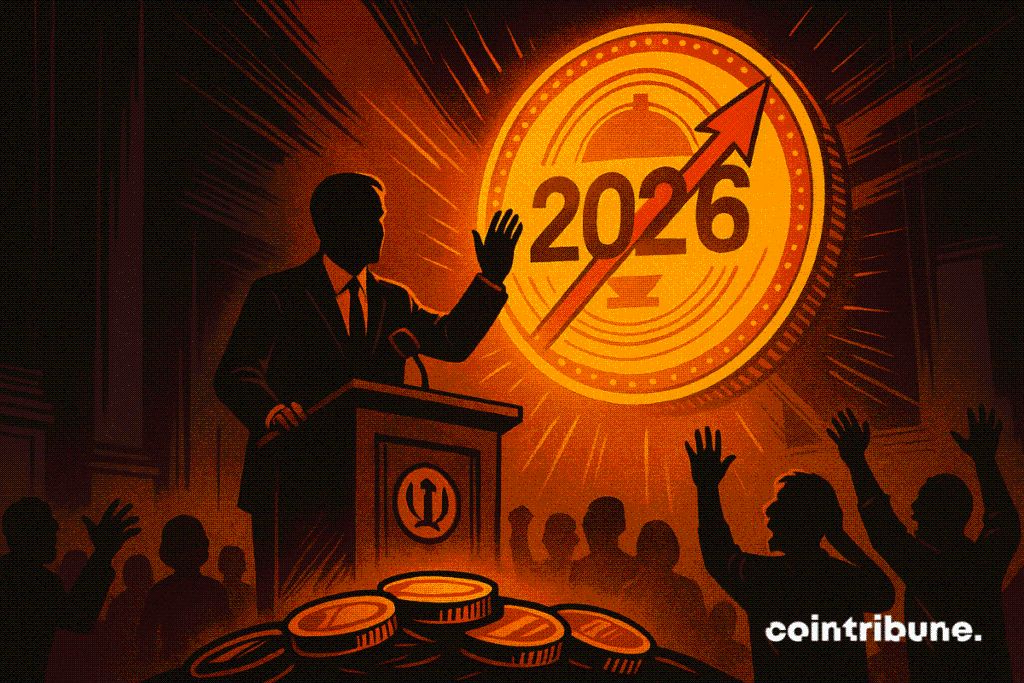Flat Tax Hike Under Discussion In French Government
The prospect of an increase in the flat tax resurfaces in budget discussions. Ahead of the 2026 finance bill, Bercy would consider raising the single flat tax, set since 2018 at 30 %. No decision has been made yet, but the return of this measure, long considered a fiscal marker of Macronism, is already causing tensions. In a context of structural deficit and revenue pressures, the stability of the savings tax framework could be called into question.

In brief
- The government is considering an increase in the flat tax as part of the 2026 budget, with a rate that could rise from 30% to 36%.
- This scenario, still undecided, aims to generate up to 1.44 billion euros in revenue to reduce the public deficit.
- This measure would challenge a fiscal pillar of Macron’s term, causing tensions within the majority itself.
- Economic circles warn of a fiscal shock risk that could weaken investment and confidence.
A budgetary measure considered for 2026
While the situation becomes very worrying for France , the idea of raising the PFU from 30 % to 33 %, or even up to 36 %, is among scenarios discussed in preparing the 2026 budget. At this stage, it is only a hypothesis studied by the government.
This is a prospect that comes back on the table, even if nothing has been decided. The objective is to mobilize new revenues to contain the public deficit, expected to be 4.7 % of GDP in 2026. Indeed, each percentage point increase of the flat tax would bring about 240 million euros, which would raise potential gains to more than 1.4 billion euros if the rate reached 36 %.
This scenario, although undecided, already fuels speculation. Since its establishment in 2018, the PFU at 30 % embodies an economic approach favorable to investment and tax simplicity. Its possible reconsideration thus represents a strategic turning point.
However, opinions differ. Some members of the majority fear “breaking a strong symbol of Macron’s term”, while others argue for a revision to meet budgetary imperatives. Several technical arguments support this reopening of the file :
- An increase of 3 points (from 30 % to 33 %) would generate about 720 million euros more ;
- A rise to 36 % would bring nearly 1.44 billion euros per year, according to internal estimates ;
- The flat tax remains lower than the tax burden on savings income in other European countries, which fuels debate on its social legitimacy ;
- Some in the majority believe that large capital holders can contribute more without harming the overall economic climate.
Increasing pressure around high net worth individuals and tax loopholes
Beyond the flat tax, it is the entire capital taxation that could be reconsidered in the coming months. The budget debate for 2026 fits into a broader dynamic, where other levers are also mentioned.
Among them, the highly publicized “Zucman tax”, a 2 % contribution on wealth exceeding 100 million euros, reappears as an alternative or complement to raising the PFU. Although this tax was rejected by the Senate after adoption by the Assembly, it remains politically active. In parallel, reflections are underway on tightening certain tax loopholes and possibly reducing exemptions overseas, within the framework of the LODEOM scheme.
The equation is delicate. The government intends to avoid a fiscal shock already denounced by several business representatives, notably the AFEP, which warns about the effects of such a shift on competitiveness, investment, and employment.
Prime Minister Sébastien Lecornu has, for his part, closed the door on a return of the wealth tax (ISF), while maintaining a trajectory of budget consolidation. In this context, raising the PFU could be seen as an intermediate compromise, politically less explosive but not without economic consequences.
For savers, an increase in the flat tax would directly affect the net yield of many investments, including those made in cryptos when they are not held in tax-advantaged accounts. This could also revive shifts toward the progressive scale, or even accelerate certain tax optimization strategies.
Disclaimer: The content of this article solely reflects the author's opinion and does not represent the platform in any capacity. This article is not intended to serve as a reference for making investment decisions.
You may also like
Algo Falls by 0.69% as Market Fluctuations and Ongoing Downtrend Persist
- Algo (ALGO) fell 0.69% in 24 hours to $0.1434, contrasting with 5.52% weekly gains but a 57.16% annual decline amid crypto market uncertainty. - Switzerland delayed CARF crypto reporting rules until 2027, citing stalled international data-sharing talks, hindering global regulatory alignment. - Bonk (BONK) launched Europe's first ETP on SIX Swiss Exchange, enabling traditional investors to access memecoins without digital wallets. - Ethereum prepares December 3 gas limit upgrade to 60M, enhancing layer-2

XRP News Today: Institutional ETFs and Derivatives Indicate a Positive Shift for XRP Above Crucial Support Levels
- XRP rebounds above $2.20 as buyers defend key support, supported by $107.92M in ETF inflows and rising institutional confidence. - Technical analysis highlights a bullish "Staircase to Valhalla" pattern, with $2.26-$2.52 resistance levels and Fibonacci targets signaling potential for $2.69. - Derivatives data shows aggressive long-positioning (OI: $4.11B), with Binance's 2.56 long-short ratio and 57% options OI surge reinforcing bullish momentum. - Institutional ETF conversions (e.g., Grayscale Zcash) an

Why Switzerland's Temporary Halt on Crypto Highlights Worldwide Regulatory Disunity
- Switzerland delays crypto tax data-sharing until 2027, highlighting global regulatory fragmentation amid CARF adoption challenges. - Two-phase approach prioritizes domestic law alignment before reciprocal agreements with key economies like U.S., China, and Saudi Arabia. - 75 CARF signatories progress unevenly, with U.S. and Brazil proposing alternative frameworks, complicating cross-border compliance. - Swiss crypto firms face operational risks during transition, as critics warn of regulatory arbitrage b

Thailand’s Bold No-Crypto-Tax Move: Shaping a Future Southeast Asian Crypto Center
- Thailand imposes 0% capital gains tax on local crypto trading (2025-2029) to boost its digital economy and attract investors. - The policy aligns crypto profits with tax-exempt stock trading, supported by a 2024 Bitcoin ETF and Tourist DigiPay pilot for foreign visitors. - Regulatory caution is evident through biometric data shutdowns and PDPA compliance, balancing innovation with security amid regional competition. - Projected $1B annual economic gains aim to position Thailand as a top Southeast Asian c
